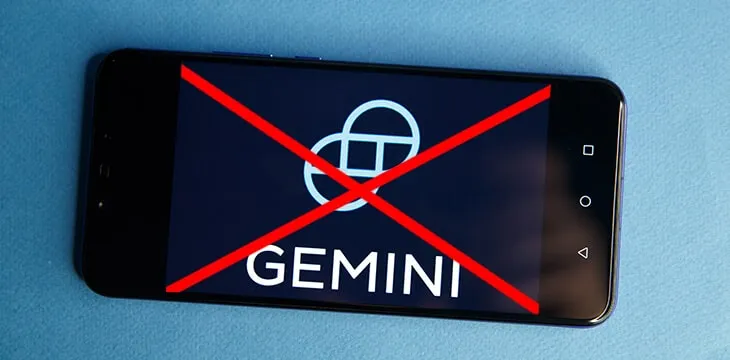|
Getting your Trinity Audio player ready...
|
Over the course of the past few months, CoinGeek has been busy reporting on stories related to regulatory crackdowns on the digital currency industry all over the world.
From digital currency exchanges like Binance getting blocked by major banks to U.S. states cracking down on BlockFi, to the EU passing laws to ban anonymous transfers of digital currency-assets, the blows just keep on coming for an industry that has thus far taken pride in flouting the law.
Recently, Gemini, an exchange run by Tyler and Cameron Winklevoss, felt the pinch as Monzo, one of the U.K.’s leading challenger banks, banned payments to it at the beginning of August. Several other U.K. banks then followed suit. The move follows a wave of U.K. banks blocking digital currency exchanges in the past several months.
Gemini can’t escape the regulatory net closing
The Winklevoss twins have always portrayed an image of playing by the rules, and they’ve made some effort to KYC check customers and avoid the murkiest aspects of the digital currency industry.
Yet, even Gemini can’t escape the closing net as regulators and financial institutions come to grips with the 1.6 trillion-dollar digital currency space which SEC chair Gary Gensler recently described as the “Wild West.” Banks and regulators looking closer at Gemini have concluded that it is not safe for their users, blemishing its image as a legal, regulated crypto-asset company.
Despite efforts to craft a squeaky clean image, the Winklevoss twins have persisted in going along with passing off BTC as Bitcoin. The pair has loudly promoted BTC as Bitcoin and has willingly promoted second-rate blockchains and tokens like Ethereum as alternatives to the original Bitcoin protocol.
Who are Tyler and Cameron Winklevoss?
The Winklevoss twins are known in popular culture as the brothers that sued Facebook founder Mark Zuckerberg for allegedly stealing their idea for the social networking site. They won a settlement worth $65 million plus Facebook shares and became large BTC holders after learning about it on vacation in Ibiza in 2012.
The twins became billionaires from their speculation on BTC, a tale told by Ben Mezrich in his book “Bitcoin Billionaires”. They also started the Gemini exchange and even launched their own stablecoin, the Gemini dollar.
Despite recognizing early that Bitcoin was electronic cash and would disrupt industries worldwide, as told in Mezrich’s book, the twins decided to back the BTC system and go along with the digital gold/store of value narrative.
It is unknown whether they still hold their BTC, BCH, or BSV tokens. However, they are loudly calling for a BTC price of $500k by 2030, so it is known which vision of Bitcoin they are backing.
Dr. Wright called this years ago
These moves against Gemini and other exchanges were predicted years ago by Dr. Craig Wright. He has covered the legal aspects of the digital currency space at length in his Theory of Bitcoin series with Ryan X. Charles, explaining why Bitcoin as it was originally designed is legal, and most other digital currencies fall afoul of securities laws.
https://youtu.be/MJYUAK3GgP4
Based on the legal information Dr Wright has shared, we can predict that the pain for exchanges and other businesses which trade in and promote these so-called assets will only intensify. As new exchanges like Fabriik enter the space to compete with the old guard, they’ll find it increasingly difficult to maintain relevance in the new, regulated world that’s fast-becoming reality.
Will the Winklevoss twins pivot?
Gemini is one of the biggest names in the digital currency space, yet it is notably absent from the list of COPA members. This group is suing Dr. Wright in an attempt to prevent him from exercising his rights over his intellectual property, primarily the Bitcoin whitepaper.
Will the Gemini twins pivot and embrace BSV as Bitcoin? They have resisted the hardcore BTC maximalist cult so far, so perhaps there is hope for the Gemini twins yet. Stay tuned.
Follow CoinGeek’s Crypto Crime Cartel series, which delves into the stream of groups—from BitMEX to Binance, Bitcoin.com, Blockstream, ShapeShift, and Ethereum—who have co-opted the digital asset revolution and turned the industry into a minefield for naïve (and even experienced) players in the market.

 07-12-2025
07-12-2025 





